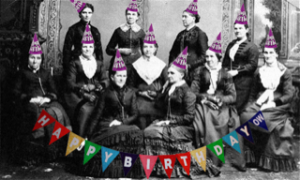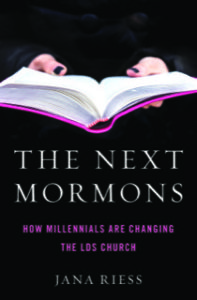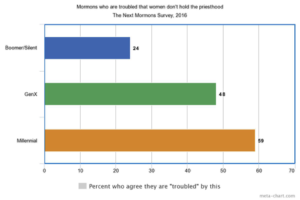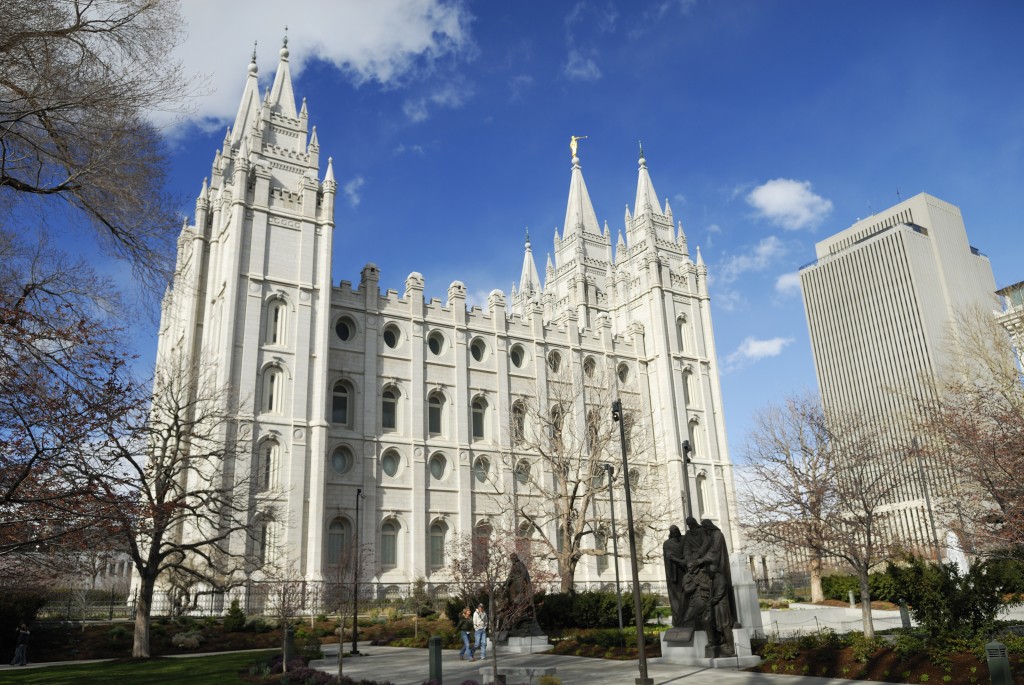Emergencies and a Male-Only Priesthood
Guest Post by Ordain Women profile contributor Abby Maxwell Hansen, originally posted on The Exponent II at Emergencies and a Male-Only Priesthood. Cross-posted with permission.

Image credit: Sergio Santos of nursingschoolsnearme.com/
I’m noticing a lot of people praising the implementation of home centered church right before Sunday meetings were temporarily shut down, which is fine – but I have something to add. Wouldn’t another great step be to ensure that every household has an adult in it who can bless the sacrament for their family or themselves during a lockdown?
I’d love a second part to this revealed change – that we could have home centered church AND ordain women to the priesthood. Because without the second half, a whole bunch of pieces are left hanging.
Below is a section of an email message that came from my very nice bishop last night:
![screenshot stating, "Since we will not be meeting for sacrament meetings for a time, I am authorizing all current temple recommend holders who are Priests, Elders, or High Priests in our ward to administer the sacrament on Sundays to their immediate family who live in their homes until we can meet again as a ward. If you do not have someone in your home who meets this criteria please let me know and we will make arrangments[sic] to get you the sacrament on Sundays.](https://ordainwomen.org/wp-content/uploads/2020/03/Screenshot_20200313-080613_Gmail.jpg)
I can think of a lot of homes of active latter-day saints without a priesthood holder there to do this. Like myself, when I was a college student with all female roommates. Or myself again, whenever my military husband would deploy to the Middle East for a year. I also have a divorced neighbor, and an elderly widow in my old ward boundaries. I have another friend who is very active in the church, but her husband no longer believes or attends. Who is going to bless the sacrament for them? Are the men in their ward or branch going to travel all day on Sundays going to these homes? That might be possible in Utah, but in other parts of the world with much wider geographical areas in church boundaries, that would be a logistical impossibility
I understand that this presents a beautiful opportunity for service. Priesthood holding men and boys get an increased opportunity to help others, which is great… but what about all the women like me, who have nothing similar to offer? If we’re trying to limit social contact as much as possible for that elderly widow I mentioned, we’ll want to limit the number of people coming in contact with her. Nursing homes are putting extremely strict limits on the number and type of visits their residents can have, and those living alone should probably be doing the same.
If there’s only one of us who can visit an older woman, who gets to go – me or my husband? Let’s say I’ve sat by her in Relief Society with her for 10 years, she taught me how to knit, and I adore her perfect old lady-ness and soft wrinkled cheeks (I’m imagining a real lady from my ward that I used to know). I’d be delighted to go and see her, but…we want to send one person from my family to check in on her, not two. My husband barely knows her. Who do we send? Well, my husband would go, not me. He is the one who could give her the sacrament and leave her with a blessing.
This isn’t just a hypothetical situation. Years ago my friend’s 10 month old daughter was in the hospital for a complication following heart surgery. The original surgery went well, but at her two week check up they noticed she wasn’t healing correctly and checked her into the hospital without warning. My husband and next door neighbor were the home teachers for this family, and my friend’s husband (an airline pilot) was currently flying a plane away from Utah and wouldn’t be able to return immediately. She asked if her home teachers could come and give her daughter a blessing and they agreed. Unfortunately with the short notice, these men were both at work and couldn’t go until late into the evening. My husband arrived home close to 9:00 pm, picked up his home teaching companion, and headed to the hospital with him.
When they finally arrived, my friend was upset and yelling at nurses. She told her home teachers rather coldly “never mind”, and to just leave. They were confused and felt a little put out. After all, they had just taken a long drive to the hospital late at night after a long day at work, only to be told to go away when they finally arrived. When he got back home close to midnight, my husband told me she hadn’t even bothered to thank them for coming.
The next morning we received the shocking news that her baby had passed away. My husband and his companion had arrived just as things were starting to go downhill, hence the chaos and yelling and lack of attention or concern for a priesthood blessing from them. It was a horribly tragic day and what had happened at the hospital the night before suddenly made perfect sense.
I’ve thought about these events many times over the years. I don’t really think that the baby would have miraculously lived if she’d got a priesthood blessing an hour earlier. What happened was going to happen either way. However, a blessing would have comforted the mother immensely, and having her friends there would have helped as well. Her husband couldn’t get back yet, her family lived far away, and she was alone all day at the hospital with her daughter. The home teaching companion’s wife and I are both friends with this woman, but all day long we didn’t go up to the hospital. We stayed home with our kids, and we weren’t the ones requested anyway – our husbands were the ones who could administer a blessing.
But what if we’d had priesthood power and authority, instead of just them? We could’ve come at any time during that afternoon or evening to give a blessing. Even if we’d waited until our husbands were home from work and just gone in their place at the same time, we would’ve been there for our friend when her daughter passed away – female friends, and mothers ourselves. I understand why she just told the men to leave. It was quickly turning into a medical emergency and she hardly even knew them.
Because women don’t have the priesthood, we don’t have the same ability to help others in our church community that our male counterparts have. Sitting on the sidelines once again during the coronavirus outbreak, I see that our usefulness in certain things (such as ordinances) is limited to twiddling our thumbs and waiting for a man to come and do it for us. How is this good emergency preparation in a church so focused on readiness for the end of times?
The coronavirus outbreak is a great opportunity to fully implement home centered church, but it’s also a great opportunity to ponder how we can be even more prepared in the future. I believe that a church where women share the responsibility and opportunity to administer to the needs of their congregation is a church that can survive anything – even the coronavirus.
12 Days of OW Christmas
Each Christmas, Ordain Women publishes a wish list of policy changes that, if decreed by President Nelson, would brighten the holiday season for all Mormons who seek gender equality. Lightheartedly sung to the tune of “The Twelve Days of Christmas,” we offer the list again—this time with modifications that reflect recent policy changes: Women can now be official witnesses to LDS baptisms and temple marriages, and ward budgets for youth activities are now “divided equitably between the young men and young women according to the number of youth in each organization.” We hope to cross further suggested changes off our yearly lists until women are ordained and our religious community fully embraces the radical inclusiveness of the gospel of Jesus Christ. May it be so. Merry Christmas!
Ordain Women’s Twelve Days of Christmas
On the first day of Christmas, the Prophet could decree…
Full gender parity!
On the second day of Christmas, the Prophet could decree…
Mothers in blessing circles
and
Full gender parity!
On the third day of Christmas, the Prophet could decree…
Women on all councils,
Mothers in blessing circles,
and
Full gender parity!
On the fourth day of Christmas, the Prophet could decree…
Female Ward Clerks,
Women on all councils,
Mothers in blessing circles,
and
Full gender parity!
On the fifth day of Christmas, the Prophet could decree…
Women interview girls!
Female Ward Clerks,
Women on all councils,
Mothers in blessing circles,
and
Full gender parity!
On the sixth day of Christmas, the Prophet could decree…
Wives, too, preside,
Women interview girls!
Female Ward Clerks,
Women on all councils,
Mothers in blessing circles,
and
Full gender parity!
On the seventh day of Christmas, the Prophet could decree…
Gender inclusive language,
Wives, too, preside,
Women interview girls!
Female Ward Clerks,
Women on all councils,
Mothers in blessing circles.
and
Full gender parity!
On the eighth day of Christmas, the Prophet could decree…
Lessons that quote women,
Gender inclusive language,
Wives, too, preside,
Women interview girls!
Female Ward Clerks,
Women on all councils,
Mothers in blessing circles,
and
Full gender parity!
On the ninth day of Christmas, the Prophet could decree…
More female speakers,
Lessons that quote women,
Gender inclusive language,
Wives, too, preside,
Women interview girls!
Female Ward Clerks,
Women on all councils,
Mothers in blessing circles
and
Full gender parity!
On the tenth day of Christmas, the Prophet could decree…
Women Mission Leaders,
More female speakers,
Lessons that quote women,
Gender inclusive language,
Wives, too, preside,
Women interview girls!
Female Ward Clerks,
Women on all councils,
Mothers in blessing circles,
and
Full gender parity!
On the eleventh day of Christmas, the Prophet could decree…
Female Stake Clerks,
Women Mission Leaders,
More female speakers,
Lessons that quote women,
Gender inclusive language,
Wives, too, preside,
Women interview girls!
Female Ward clerks,
Women on all councils,
Mothers in blessing circles,
and
Full gender parity!
On the twelfth day of Christmas, the Prophet could decree…
Women’s ordination,
Female Stake Clerks,
Women Mission Leaders
More female speakers,
Lessons that quote women,
Gender inclusive language,
Wives, too, preside,
Women interview girls!
Female Ward Clerks,
Women on all councils,
Mothers in blessing circles,
and
Full gender parity!
But Mostly Me(n)
I was listening to the soundtrack to the hit 2011 Broadway musical “The Book of Mormon” as I got ready for church this morning. One of the songs is titled “You And Me (But Mostly Me)”. It features the two main characters of the musical, Elder Price and Elder Cunningham, preparing to depart from the MTC to the mission field of Uganda. Elder Price is the prototypical golden boy missionary – “the smartest, best, most deserving elder the center’s ever seen” in the words of a fellow missionary. Elder Cunningham is his clueless but eager-to-please companion. The key message of the song is summed up nicely in this excerpt:
| Elder P | You and me –but mostly me — |
| Are gonna change the world forever | |
| ‘Cause I can do most anything | |
| Elder C | And I can stand next to you and watch! |
| Elder P | Every hero needs a sidekick! |
| Every hero needs a mate! | |
| Elder C | Aye aye! |
| Elder P | Every dinner needs a side dish |
| Elder C | On a slightly smaller plate! |
| Both | And now we’re seeing eye to eye |
| It’s so great we can agree! | |
| That Heavenly Father has chosen you and me | |
| Elder P | Just mostly me! |
The irony – and consequent hilarity – of the song is conveyed through Elder Price’s conflicting desires to work as part of a companionship but also claim credit for “set[ting] the world’s people free” and “do[ing] something incredible / that will blow God’s freakin’ mind.”
An analogous (but not so hilarious) conflict can be observed in the LDS church’s gender relations. We are taught that we are all children of God with incredible divine potential, but half of us are systematically relegated to the role of “sidekick,” “mate,” or “side dish on a slightly smaller plate” based on biological characteristics over which we have no control. We are pushed to the sidelines to “WATCH” our brothers in the gospel be ordained to the Priesthood, preside, lead, and ultimately control everything about an institution that is comprised of nearly 60% women. This is why leaders feel the need to repeatedly reassure us women that we are equal companions in the work of our marriages, lives, and the church.
It only takes a quick look around – at our partnerships, pulpits, and leadership structures – to realize that we are being treated like the eager but naïve Elder Cunningham. Nowhere is this more evident than in The Family: A Proclamation to the World, which states simultaneously that “fathers and mothers are obligated to help one another as equal partners”, yet “fathers are to preside”. Our leaders reassure us: “Heavenly Father has chosen you and me.” But actions speak louder than words and we hear the next part of the song reverberate loudly: “but mostly me[n]”.
A Father’s Day post

Yesterday, as I was tying “Dad! Tags” on bottles of Dad’s Root Beer to be distributed in my ward for Father’s Day, something occurred to me: There’s an abundance of church rhetoric that conflates womanhood with motherhood but none that similarly conflates manhood with fatherhood. A quick search on lds.org seemed to validate my impression.
Not surprisingly, Sheri L. Dew’s “Are We Not All Mothers?” immediately popped up. It remains the quintessential example of the way Mormons conflate womanhood with motherhood. “Just as worthy men were foreordained to hold the priesthood in mortality,” Dew asserts, “righteous women were endowed premortally with the privilege of motherhood. Motherhood is more than bearing children, though it is certainly that. It is the essence of who we are as women. It defines our very identity, our divine stature and nature, and the unique traits our Father gave us.”
My search confirmed that fatherhood is certainly among the many important roles men inhabit within the context of Mormonism. But there’s the essential difference: Unlike motherhood for LDS women, fatherhood—and the church rhetoric surrounding it—doesn’t circumscribe Mormon men’s ability to function in a number of other capacities.
The idea that women have motherhood and men have priesthood has been employed throughout our history as an excuse for denying women ordination and more expansive participation in our religious community. Rather than questioning the inequitable system they inherited, men and women of good will tried to make sense of it. As a result, the rhetoric surrounding motherhood became bloated in order to avoid confronting the blatant inequality of an all-male priesthood.
As we celebrate the fathers in our lives who have loved and nurtured us, perhaps it’s time as a church to examine our rigid assumptions about fatherhood and motherhood and how those assumptions affect our ability to thrive within our religious community. More often than not, I suspect we will find that many of the distinctions that divide us are ultimately unjustifiable.
A Little Institutional Spring Cleaning
What remnants of needless attitudes, practices and policies, particularly with regard to gender, do we retain simply because they’ve grown familiar and, as such, unquestioned? Perhaps it’s time to do a little institutional spring cleaning.
It usually takes a disruption in our routine thoughts and experiences to open us to needed change–a tragedy or an epiphany or something as mundane as a question or a conversation.
In Ordain Women’s Conversation Three, I wrote: “As we obtain more light and knowledge, our [lives,] institutions and policies should reflect that increased wisdom. Church members … play a part in this process. We ask questions and articulate the need for revelation.”
Similarly, Elder Dieter F. Uchtdorf said that “… if we stop asking questions, stop thinking, stop pondering, we can thwart the revelations of the spirit. Remember, it was the questions young Joseph asked that opened the door for the restoration of all things. … How often has the Holy Spirit tried to tell us something we needed to know, but couldn’t get past the massive, iron gate of what we thought we already knew.”
On this Easter Sunday, Elder Uchtdorf’s remarks bring to mind the image of the open tomb–the stone rolled back, no massive iron gate concealing the revelation within. That women were the principle witnesses to this disruptively central event of Christianity further encourages us as a church to clean out the patriarchal cobwebs that keep us from imagining the possibility of a religious community without obstacles to women’s ministry.
Happy Easter, from Ordain Women.

A Celestial Shout Out
Today marks both the founding of the Relief Society on March 17, 1842, and the launch six years ago of the Ordain Women website. We chose the date for obvious reasons. We’d like to think our 19th-century foremothers appreciated our nod to their efforts and, in turn, gave OW a celestial shout out.

We noted on our first anniversary that in anticipation of the OW website’s launch, “a handful of us called, emailed, begged and prodded friends and family members to consider going public—photos, names … and all—on the need for the ordination of women in the LDS Church. We knew there were many in the Mormon feminist community who had thought seriously about women and priesthood—some for many years, others more recently—and what going public might mean.” Though hundreds had previously signed the All Are Alike unto God petition calling on Church leaders to “thoughtfully consider and earnestly pray” about the question of women’s ordination, we recognized that it was quite another thing to proclaim one’s conviction in an OW profile and “commit to public action, particularly in a community that tended to confuse questioning with faithlessness.”
“As the first Ordain Women profiles showed up in our inboxes, … we were deeply touched by the courage, faith, trust, thoughtfulness and sincerity of the stories we read.” Now six years and over 700 OW profiles later, we still are. Our hope is that our profiles will continue to offer a positive vision of what women’s ordination could mean for the LDS Church and its members just as we found glimpses of female spiritual empowerment in the 19th-century blessings and conferral of keys to women recorded in the minutes of the Nauvoo Female Relief Society.
We also celebrate several initiatives that indicate our leaders are responding to the prayers and petitions of Mormon women for a more gender inclusive church, including:
- A lowering of the age requirement and lifting of the no-pants policy for female missionaries
- Women offering prayers in general conference
- The announcement that the General Women’s Meeting is now a session of general conference like the Priesthood Session
- The availability of the Priesthood Session to all through live streaming
- A greater emphasis on gender-inclusive local councils
- Significant, gender equitable changes to LDS Temple rituals
- Efforts to separate priesthood from maleness by encouraging members not to use the term “the priesthood” when referring to men
As Ordain Women enters its seventh year, we look forward to more changes that reflect the radical inclusiveness of the Gospel of Jesus Christ, including the ordination of women. Our profiles remain foundational to our efforts to encourage such changes, so please visit our profile pages and consider submitting your own. Happy Birthday!
“The Next Mormons”

In The Next Mormons: How Millennials Are Changing the LDS Church—due out today
—Jana Riess presents the findings of The Next Mormons Survey, an extensive
compilation of the “attitudes, beliefs, and behaviors” of current and former Mormons.
The results are revelatory.
Of particular interest to those of us concerned with gender equality in Mormonism is
that there appears to be “a clear divide between how older Mormons feel about
women’s roles compared to younger ones,” writes Riess. “For example, only 24% of
Boomer/Silent Mormons agreed that ‘the fact that women do not hold the priesthood
sometimes bothers me,’ meaning that the vast majority of these older generations are
not troubled by the restrictions placed on women in the Church.”

“It’s a different story for younger Mormons,” continues Riess. “Among Millennials, roughly six in ten say they are bothered that women don’t hold the priesthood, a jump of 35 points.”
“That’s just the picture among people who still identify as Mormon. Among those who no longer consider themselves Mormon, three-quarters are bothered by women not holding the priesthood.”
“What’s more, for many of the women in the former Mormon sample, this was a strong enough frustration that it helped to push them out of the Church. Among former Mormon women, ‘the role of women in the Church’ was the third most common reason cited out of thirty possible reasons for leaving the religion.”
“What we are seeing here is a generational shift,” concludes Riess. “The answers that have worked for [older generations] are less accepted among a generation that has grown up with women’s leadership being taken for granted everywhere . . . except at church.”
Are the Temple Changes Good?

Ordain Women Chair, Bryndis Roberts, joined the Rational Faiths Mormon Women Speak podcast (episode 19) about the recent temple changes:
Are the recent temple changes good? What has the response been from the Mormon Feminist community? Are apologies necessary for this issue? Is there further marginalization that has occurred because of these changes? How do women of color feel about these temple changes? What do these changes tell us about possible future paths for the church? Does it pave the way for women’s ordination?
Join Miguel and Lesley as they speak with Bryndis and Norienne about their perspectives on the recent changes to the temple ordinances.
***This episode contains a TW for spiritual abuse, temple triggers, and discussion of what some may feel are sacred aspects of their faith.***
Listen to the Rational Faiths Mormon Women Speak podcast episode online (also available to download).
You can also find it on these platforms: Apple Podcasts | Android | RSS
Originally posted at RationalFaiths.
Divine Discontent

For those of us in the Church of Jesus Christ of Latter-day Saints who have struggled with the patriarchal inequities in our religious practices and policies, the recent changes in our temple ritual, many of which significantly address some of its gender inequality, are a long-awaited and welcome answer to the prayers and petitions of countless women. That the Church has asked us not to discuss them makes it difficult to process both the exhilaration and the years of anguish attached to such an announcement. It’s also unrealistic in the age of social media. As such, we’ve assembled links to a number of public sites that we think offer information and thoughtful responses to these changes.
The first is the Church’s official statement:
“Whenever the Lord has had a people on the earth who will obey His word, they have been commanded to build temples. Scriptures document patterns of temple worship from the times of Adam and Eve, Moses, Solomon, Nephi, and others. With the restoration of the gospel in these latter days, temple worship has also been restored to bless the lives of people across the world and on the other side of the veil as well.
Over these many centuries, details associated with temple work have been adjusted periodically, including language, methods of construction, communication, and record-keeping. Prophets have taught that there will be no end to such adjustments as directed by the Lord to His servants.
A dedicated temple is the most holy of any place of worship on the earth. Its ordinances are sacred and are not discussed outside a holy temple.”
The Church’s statement notwithstanding, the recent changes appear to be much more than mere “adjustments”. The Salt Lake Tribune reported that now “men and women make all the same covenants, or promises, to God, rather than separate ones. Women also no longer covenant to hearken to their husbands [or veil their faces]. ‘If you ask any faithful feminist what she wanted to change,’” one woman who participated in the new ceremony told the Tribune, “‘these hit the entire checklist. Every single complaint was addressed and fixed in a meaningful way,’ she said. ‘This was not a baby step; it was like a leap forward.’”
After listing a number of the purported changes, Religion News Service columnist Jana Riess wrote, “I can understand leaders’ desire to keep the changes out of the news if possible (though that is surely a losing battle in 2019), and I can also appreciate a reticence to explain the ineffable. One of the gifts of the temple has always been that we are free to exercise our own agency through prayer to determine what it means; no one in authority dictates its interpretation.”
“But,” Riess continued, “complete radio silence is inadequate in this case. As Emily Jensen [who is quoted in the post] pointed out, it’s particularly damaging to women if we don’t talk about the changes. ‘For as long as there have been temple ordinances, women in the Church of Jesus Christ of Latter-day Saints have borne the brunt of covenanting and acting in a way that seemed contrary to much of what they were taught outside of the temple about their relationship with the divine and the eternities. This has now changed. … We have to acknowledge the change. Because if we do not, we as a Church will continue to force women to bear the burden of wondering if they were wrong.’”
The Exponent II blog featured several guest and reader responses to news of the changes in a two-part “Sisters Speak” series. “Like many others,” wrote ECR, for example, “I’m so excited by the changes and the theological implications. … I’m also mourning my own experience, and how much better it could have been. … I need to sort through these feelings in a way that doesn’t use concealed and coded language. It’s difficult to be told by men not to openly celebrate or react to something that doesn’t impact them as much as it does us. Why minimize something so theologically monumental?”
Moss, another Exponent respondent, poignantly posted: “I’m in tears over this. So much pain and angst over this for the last 15 years. … And now it’s changed. And they’re not going to tell us why our suffering was necessary.“
Exponent reader ML added: “My heart is full of joy for these changes. To borrow from the lovely talk at last conference, I’ve felt a lot of ‘divine discontent’ towards the temple for a while now. To hear that so much has been fixed is beautiful. I know it isn’t completely fixed yet, not by a long shot, but I’m eager to attend after a pained hiatus and witness the changed ordinances firsthand.” She ended with a hope many share: “I can’t wait for the day that all has been made right and whole and safe for ALL of God’s children to attend the temple.”
See also “I Don’t Take Women’s Ideas and Claim Them as My Own–God Gave Me These Ideas. And In Completely Unrelated News Please Don’t Talk About These Ideas and Let’s Pretend Those Women Don’t Exist,” “Renewing My Vows,” “Temple, Gender, and Restitution,” and “She Who Speaks” at Feminist Mormon Housewives; “Let’s Hear It for the Boys! (and Other Shout-outs Re: the Temple Changes)” and “What I Was Supposed to See” at Sisters Quorum; “Standing Between Covenants,” “So. Many. Feelings,” and “Still Seeking Greater Light and Knowledge” at Rational Faiths; “A Mind Turned to The Mothers,” “Don’t Forget About Us,” “O Remember, Remember,” and “Another Perspective on the Temple Changes” at Exponent II; “Are the Change in the Temple Meaningful” at Zelophad’s Daughters
12 Days of Christmas

adapted image from Penelope Else on Flickr
Each Christmas, Ordain Women publishes a “wish list” of policy changes that, if decreed by President Nelson, would brighten the holiday season for all who yearn for gender equality in the Church of Jesus Christ of Latter-day Saints.
Lightheartedly sung to the tune of “The Twelve Days of Christmas,” we offer the list again–and will continue to do so in the coming years–until our religious community fully reflects the radical inclusiveness of the Gospel of Jesus Christ.
Once again, a big OW shoutout goes to supporter Lori LeVar Pierce for recording the OW Twelve Days of Christmas so we can all sing along.
Traditionally, the twelve days of Christmas begin on Christmas day and end on January 5, the eve of the Feast of the Epiphany.
Merry Christmas!
(Or listen on our Youtube channel.)
Ordain Women’s Twelve Days of Christmas
On the first day of Christmas, the Prophet could decree…
Full gender parity!
On the second day of Christmas, the Prophet could decree…
Mothers in blessing circles
and
Full gender parity!
On the third day of Christmas, the Prophet could decree…
Women as witnesses,
Mothers in blessing circles,
and
Full gender parity!
On the fourth day of Christmas, the Prophet could decree…
Equal children’s budgets,
Women as witnesses,
Mothers in blessing circles,
and
Full gender parity!
On the fifth day of Christmas, the Prophet could decree…
Women interview girls!!!
Equal children’s budgets,
Women as witnesses,
Mothers in blessing circles,
and
Full gender parity!
On the sixth day of Christmas, the Prophet could decree…
Wives, too, preside,
Women interview girls!!!
Equal children’s budgets,
Women as witnesses,
Mothers in blessing circles,
and
Full gender parity!
On the seventh day of Christmas, the Prophet could decree…
Gender inclusive language,
Wives, too, preside,
Women interview girls!!!
Equal children’s budgets,
Women as witnesses,
Mothers in blessing circles.
and
Full gender parity!
On the eighth day of Christmas, the Prophet could decree…
Lessons that quote women,
Gender inclusive language,
Wives, too, preside,
Women interview girls!!!
Equal children’s budgets,
Women as witnesses,
Mothers in blessing circles,
and
Full gender parity!
On the ninth day of Christmas, the Prophet could decree…
More female speakers,
Lessons that quote women,
Gender inclusive language,
Wives, too, preside,
Women interview girls!!!
Equal children’s budgets,
Women as witnesses,
Mothers in blessing circles
and
Full gender parity!
On the tenth day of Christmas, the Prophet could decree…
Women on all councils,
More female speakers,
Lessons that quote women,
Gender inclusive language,
Wives, too, preside,
Women interview girls!!!
Equal children’s budgets,
Women as witnesses,
Mothers in blessing circles,
and
Full gender parity!
On the eleventh day of Christmas, the Prophet could decree…
Female financial clerks,
Women on all councils,
More female speakers,
Lessons that quote women,
Gender inclusive language,
Wives, too, preside,
Women interview girls!!!
Equal children’s budgets,
Women as witnesses,
Mothers in blessing circles,
and
Full gender parity!
On the twelfth day of Christmas, the Prophet could decree…
Women’s ordination,
Female financial clerks,
Women on all councils,
More female speakers,
Lessons that quote women,
Gender inclusive language,
Wives, too, preside,
Women interview girls!!!
Equal children’s budgets,
Women as witnesses,
Mothers in blessing circles,
and
Full gender parity!






